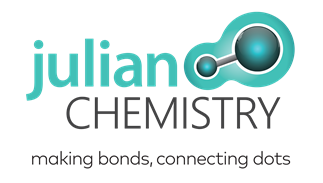Reasons to Start A-Level H2 Chemistry Tuition as Early as Possible

Poly or JC? What’s Best for You
December 30, 2020
Want to Save the World? Why We Need Chemistry Knowledge to Deal with Climate Change
April 23, 2021Why study H2 chemistry? We’ve already discussed the importance of the subject if you’re looking for an academic or a professional future in certain scientific fields. It’s now time to take a look at the best ways to prepare and maximise knowledge.
A-level H2 chemistry tuition is readily available for Singaporean students but do you really need it? How soon should you get started with such a programme in order to enjoy the biggest learning benefits?
The very nature of H2 chemistry determines the importance of preparing adequately. Many believe that it is reminiscent of O-level chemistry but this isn’t the case. For a start, H2 chemistry explores deeper topics and there’s another important syllabus switch – from more theoretical learning to the practical application of the scientific principles in real life.
As a result, learning cannot be condensed over the course of several weeks. Analytical thinking and the understanding of scientific concepts so these could be applied to actual problem solving require a lot more knowledge and in-depth familiarity with the subject matter at hand.
Just memorising isn’t going to do the trick. H2 chemistry exams tend to be quite complex, which is why sufficient preparedness and a very specific approach towards learning will be required. If you still need a few additional reasons to consider H2 chemistry tuition, here are the most important benefits you’ll get by joining such a programme.
You’ll Find It Easier to Tackle Topical Complexity
Every student knows they’ll have to cover a broad range of topics in a limited amount of time. When it comes to complex subjects like H2 chemistry, the task becomes even more challenging.
Taking standard timelines in account, students have approximately seven months to get ready for JC1 End-of-Year Promotion Exams.
For every single H2 subject, there will be a significant expansion on the topics introduced in secondary school. If we take a look at chemistry specifically, the increase in the range of required knowledge for excellent test performance can be overwhelming.
A-graders would need to cover three broad topics – stoichiometry & redox, atomic structure and chemical bonding in less than two months. Overall, JC1 H2 chemistry students will be tested on 12 topics in their exam. The workload required to cover all those and build deep enough knowledge would be a lot more intense than the effort put in the entire secondary school pure chemistry curriculum.
Chemistry tuition can give structure and create a learning routine that will optimise the coverage of such broad topics within a fairly short period of time. Without a systemic approach, acing exams would become a much more difficult tasks that a fair share of students will discover impossible to tackle on their own.
Overcoming Topical Diversity and Project Work
Every JC student has to offer at least three H2 and one H1 subject on top of the H1 general paper (GP) and H1 project work (PW). In addition, they have to acquire a satisfactory pass in their mother tongue.
The requirements don’t end there. One of the three subjects has to be contrasting with the area of specialisation chosen by the student. For example, science students have to offer at least one subject in the field of humanities and arts (and vice versa for arts students).
Such complicated topical selection criteria increase the likelihood of poor performance.
Needless to say, students choose areas of specialisation on the basis of strengths and future learning preferences. Hence, an arts student can have a very difficult time preparing for their JC1 chemistry. The aim of the requirement is easy to understand. It pushes the boundaries of what students are comfortable with. At the same time, however, having to go through such diverse educational preparations will only contribute to higher levels of stress and anxiety.
There’s one more important part of the JC1 journey all students need to understand.
A lot of the study time will be occupied by the H1 PW. This is the only A-level requirement that involves individual and team work elements. Since meetings and collaborative work have to occur, many students end up wasting time and finding it difficult to organise the execution of PW.
As a student, you have to account for topical diversity on top of the in-depth learning requirement. Handling organisational aspects of learning isn’t easy, either. Going through tuition can eliminate a lot of the guesswork from the equation. Perfecting learning processes through trial and error will waste a lot of time – time that most really don’t have and cannot afford to throw out the window.
You’ll Ensure Better Preparedness for Mid-Year Exams (MYE)
Before a freshman gets entirely comfortable with their JC life, the June holidays will arrive. These are characterised by many CCA trainings and student leadership camps.
All of these commitments can be distracting but students still need to focus and prepare for an upcoming milestone – the Mid-Year Exams (MYE) that take place in July.
There’s an important reason why MYE should not be taken light-heartedly.
There’s a limited amount of time for all of the upcoming work. For example, the Promo Exam occurs in September, just two months after MYE.
On top of that, poor MYE performance can be academically detrimental. Anyone who flunks the MYE will need to put a lot of work on the content covered from February to May. Schools will also introduce tougher topics over these two months. In the chemistry realm, these include chemical equilibrium and organic chemistry. All JC1 topics will be included in the Promo Exam.
After MYE, the workload will increase even further as PW preparations are going to commence. Finally, anyone who has not mastered the topics covered in MYE will face extensive difficulties continuing with the more challenging academic assignments that will occur over the course of these two months.
Getting ready for MYE is another extensive process. Since the exam occurs in July, work should optimally begin in February.
As you can see, the odds are stacked against you, especially if scientific topics are not your biggest strength. Hence, if you’re facing challenges with quizzes and assignments by March, you should definitely seek professional assistance.
Chemistry Classes – A Chance to Benefit from a Personalised Programme
A-level chemistry tuition opportunities like those provided by Julian Chemistry give you a chance to benefit from small group settings and learning personalisation. If you’re struggling with a specific topic or chemistry in general, this is your best chance to tailor the learning process to your strength and overcome the biggest challenges.
Julian Chemistry classes are the perfect opportunity for those who wish to gain a holistic understanding of H2 chemistry, for those interested in staying ahead of their peers and investing in a bright academic/career future.
If you have some additional questions, you can contact Julian Chemistry or explore the depth of our programmes here.




